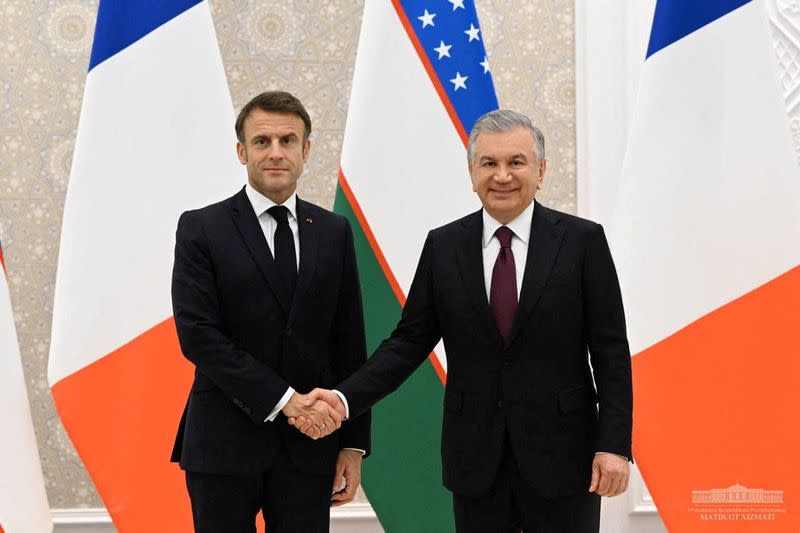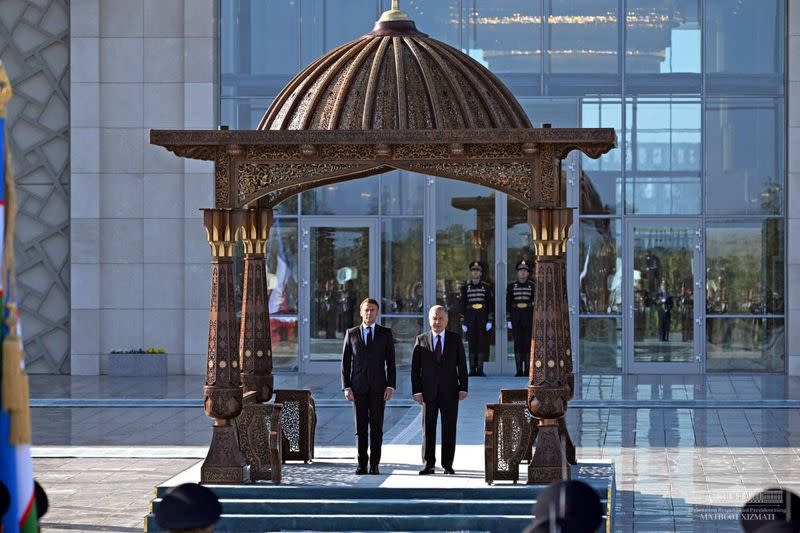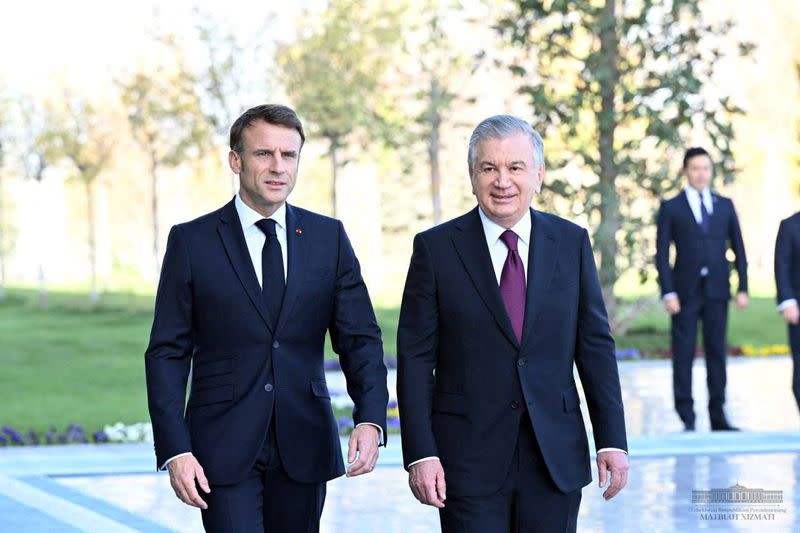Macron says France and Uzbekistan aim for 'strategic' ties
(This Nov. 2 story has been corrected to remove reference to Boehringer Ingelheim following a statement from the company, in paragraph 8)
(Reuters) - President Emmanuel Macron said on Thursday that France and Uzbekistan would develop what he described as a strategic partnership, as the two countries discussed projects in agriculture and uranium.
Uzbekistan has, like its neighbours, refused to support Russia's invasion of Ukraine, and vowed to abide by Western sanctions despite maintaining close ties with Moscow.
"We have agreed with the President (Shavkar Mirziyoyev) ... to build a strategic partnership," Macron said during the first visit by a French leader to Central Asia's most populous nation since President Francois Mitterrand.
Macron did not elaborate on what this involved, but in Uzbekistan the term "strategic" is usually reserved for the highest level of partnership with another country.
The French President praised Mirziyoyev's reforms and promised big investments, in the kind of move Tashkent's former Soviet overlord Russia has described as the West trying to court its traditional allies.
"We support your policy and would like to help you implement it," Macron told Mirziyoyev at a meeting in Samarkand.
Mirziyoyev's office said the Uzbek leader, who has since 2017 opened up his country to foreign trade and investment, met a number of French executives who had arrived with Macron.
They discussed plans by dairy giant Lactalis to build a plant in the city of Namangan and a proposal by Semmaris to build a network of agricultural logistics centres in Uzbekistan.
At a meeting with Orano chairman Claude Imauven, the sides "supported initiatives to expand cooperation in the exploration and mining of uranium", Mirziyoyev's office said.
Uzbekistan is the world's fifth-largest uranium producer.
A day earlier, Orano Chief Operating Officer Nicolas Maes also held meetings in Kazakhstan, the No.1 uranium producer, to discuss deepening cooperation.
Both countries could help France, which is heavily reliant on nuclear power, ease its dependence on Russian supplies.
(Reporting by Mukhammadsharif Mamatkulov; Writing by Olzhas Auyezov; Editing by Alexander Smith)

 Yahoo News
Yahoo News 


